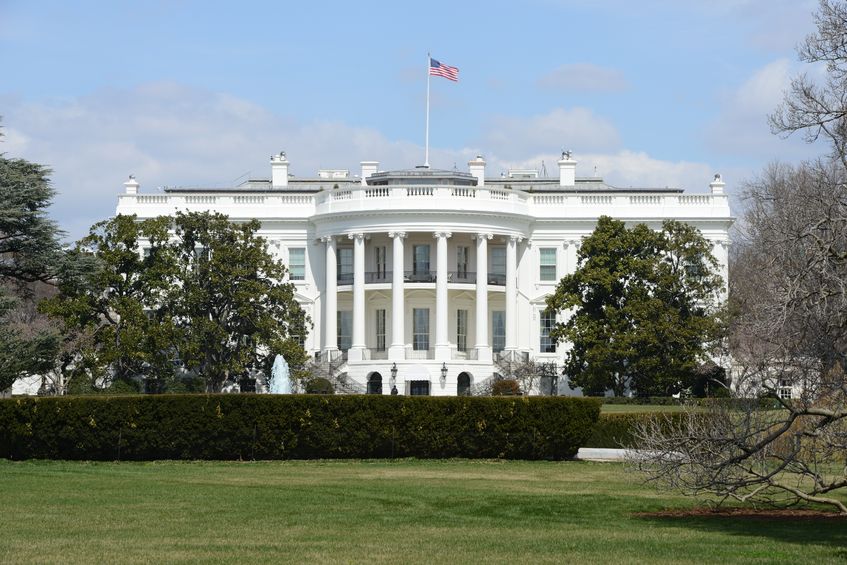Two former presidents have recently been in the news for unfavorable reasons. Recent DNA testing showed that Republican Warren Harding, already believed to have had an extra-marital affair with at least one mistress, likely had a love child with another, perhaps confirming the second one’s tell-all book about their affair written in the 1920s after Harding had died in office. Another former president, Democrat Jimmy Carter, announced that he had cancer. What do these seemingly unrelated chief executives—in both time, party, and temperament—have in common? They were both significantly better presidents than the historical reputations they have been given.
In fact, these presidents may have been better than they themselves believed. Warren Harding famously admitted that he was unfit for the role of chief executive. In Jimmy Carter’s case, he has done little to try to improve the historical memory of his time in office, instead concentrating on many noteworthy humanitarian accomplishments during his post-presidency—perhaps an admission that things didn’t go so well while he was in the White House. These two men were too hard on themselves.
Both of these men did have their failures, which are often highlighted by historians, but also had forgotten accomplishments that greatly exceeded their disappointments. Harding is remembered for scandals, both sex and corruption, while in office, whereas Jimmy Carter is mainly remembered for stagflation—high inflation combined with slow economic growth.
Harding’s sex scandals had even less to do with his performance in office than those of Bill Clinton (Clinton’s perjury in a personal matter undermined the legal system, whether or not one believes it rose to the level of an impeachable offense). In the three corruption scandals during his administration, later publicized after he died, Harding had no involvement, and the culprit in one of them was not appointed by Harding. It is never good to have corruption in a presidential administration, but historians have been selective in forgetting significant corruption in some favored administrations—for example, they have let Harry Truman and Ronald Reagan off the hook for significant venal corruption for which the Harding administration was not excused. Also, historians focus on venal corruption—such as that of the Harding and Ulysses S. Grant administrations—at the expense of constitutional scandals, such as Ronald Reagan’s Iran-Contra and Richard Nixon’s Watergate, which have much more serious implications for the republic than a few officials benefiting excessively from public service.
Instead, Harding should be remembered for reestablishing what he called “normalcy” after Woodrow Wilson’s great fiasco—altering the balance of power in Europe by the U.S. entry into World War I, which ultimately led to World War II and the Cold War. After the war, Harding rejected U.S. entry into the League of Nations, which would have usurped Congress’s constitutional power to declare war and could have automatically involved the United States in many unnecessary overseas wars. Harding—and the war-exhausted American people—wanted to avoid future conflicts. So Harding reached the first international arms control agreement, the Washington Naval Treaty, which reduced the naval tonnage of the world’s largest naval powers. The treaty was used as a precedent for future arms control agreements that saved money and made war less likely. At home, Harding successfully dealt with a war-induced recession by greatly reducing government spending and allowing the economy to right itself naturally. Harding—and his successor Calvin Coolidge, who largely continued Harding’s peaceful polices abroad and fiscal conservatism at home—presided over one of the few times, since its origin in the 1850s, that the Republican Party has actually given the American people small government (the others being the one-term of Rutherford B. Hayes and perhaps the one term of Chester Arthur, both in the late 1800s).
Despite their difference in party, Jimmy Carter followed similar policies to Harding in returning the country to normalcy after the unpopular Vietnam War and Watergate scandal. Contrary to conventional wisdom, even among historians, Carter—not Reagan—was the first conservative president since the Harding/Coolidge era. Carter pioneered most of what Reagan would become famous for—deregulation of the economy and fiscal and monetary conservatism. Carter inherited stagflation from Nixon’s Vietnam War and profligate monetary policies to win re-election. In the end, Carter appointed one of the greatest heads of the Federal Reserve in American history—Paul Volcker—who austerely reduced the money supply, which ultimately dramatically lowered inflation and led to the prosperity of the 1980s, for which Reagan’s measly net tax cut has been given the credit. Furthermore, experts on regulation have noted that Carter’s full or partial deregulation of four major U.S. industries was much more consequential than Reagan’s reducing enforcement of existing regulations.
Finally, Carter, sensing the war exhaustion of the American people after Vietnam, had the best post-World War II presidential record of military restraint. Reagan, often given credit for a macho reputation that deterred conflict, really began the ramp up back to useless and costly overseas American meddling—by militarily provoking Libyan dictator Muammar Gaddafi, invading the tiny country of Grenada for no good reason, and getting almost 250 Marines killed in Lebanon in support of Israel’s invasion of that country. In contrast, Carter only used military action once in an attempt to rescue hostages held by Iran, which he eventually got released by negotiation.
Thus, the candidates for president in 2016, both Democratic and Republican, could learn valuable lessons from the successful small government policies, both at home and abroad, of Harding and Carter; but as yet, they don’t seem to be getting it.

















